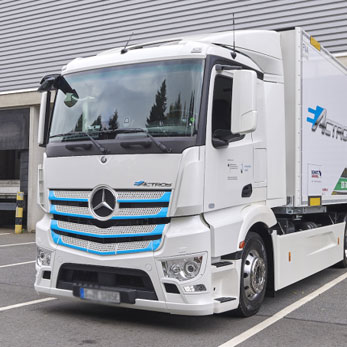Truck Insurance Comparison FAQs

Are HGV Salaries Going Up Or Down This Year In The Haulage Sector?
Are HGV Salaries Going Up Or Down This Year In The Haulage Sector
For new start up motor trade businesses researching and asking questions about salary growth in the haulage sector there is bad news abound. For HGV drivers however the statistical information on wage increase is great news. According to a poll completed by The Road Haulage Association (RHA) salaries for the haulage sector have increased a whopping 2.75% and articulated lorry driver pay seeing hourly rates top out at a 5.4% increase. In the main the driver of these increases has been Brexit and uncertainty surrounding immigration and the ability to remain. Coupled we think, with a much better performing pound against the Euro which means less interest from Eastern European workers to travel to earn when the pay sent home to their families would be less than say three years ago.
More in the industry are pointing to the ineffective Government strategy of training new drivers for the haulage industry. Not many feel the Trailblazers apprenticeship scheme which was set up to incentivise new venture commercial HGV drivers, has hit the mark. Failing to recruit enough interest despite a £150 million investment. Figures suggest only £10 million has been raked back as a reward. The upside however is increased wages for HGV drivers and the industry in general. The downside is a shortage of labour which can mean its more difficult to get fully comprehensive cover.
Will HGV salaries Increase Further in 2020?
Without a doubt HGV driver pay will increase more in the next few years until the government start to eek out a more formal immigration policy. Until at least December, Europeans in other EU nations are still free to travel to the UK. The sticking point is whether labour will cross borders for a short term pay rise and increase in income versus remaining in a home country or another EU country and ensure long term work and security. This is why the Haulage industry has to revisit the Apprenticeship Trailblazers Scheme to ensure more British or other rest of world nationals are incentivised to come to the UK to drive. Towards the end of 2019 there was a need for 60,000 more drivers, the strain on the motor trade industry is heavy. The idea that self driving HGVs could eradicate the need for job fulfillment is a slim chance as this is a five to twenty year projection and not an immediate solution.
Any job has to be attractive and that begins with salary. Being a truck driver is not an easy task. First there are the driving qualifications for Heavy Goods Vehicles, the constant retraining and awareness. The long hours away from home and family. It is tiring hard work driving each day. The surprise uplift in wages will attract new HGV drivers whether born in Britain or moving in from abroad. The costs of these wage increases will have to be borne from somewhere.
Seasonal Demand, Visas, Long Term Salary Projections
The Government is hoping to be very clever with immigration visas after Brexit but it is not thought that the UK will expand Tier 2 visas for haulage drivers from abroad, indeed driving down lower paid employment from overseas has been a politically motivated promise. The 60,000 driver shortage was a concern for the Christmas period only, this gap was eventually filled primarily by 50% agency drivers, their make up always a high at any point of the year. What happens next? Clearly wage growth is an indicator that more young drivers will tilt towards the industry but this takes time. The average wage across the United Kingdom is £30,000. With Manchester seeing £31,787, Liverpool £32,500 and Bedford at £23,872. If there is an annual increase of 5% those long tiring hours will start looking like a great career move but the haulage industry needs to do more. Whether that extends to more loans for additional HGV training or indeed vehicle ownership is one route.
Attracting Current LGV Driving License Holders
For a few years now it has been possible to tell that there are far more registrations for driving goods vehicles than there are actual drivers in employment. There appears to be a high number of Category C and C + E licence drivers not working. Why? There are a variety of reasons. While some may return as wages increase, the thousands number around 60,000 holders find stress a de motivating and demoralising. When they add in factors such as pressure from telematics and rotation equating to long working hours.
There seems to be not just a recruitment issue but the ability to retain long term drivers.If you can work out how premiums are calculated the you are well on the way to reducing costs.The majority could start back driving within a fortnight simply by undergoing the required refresher CPC training. They however see huge problems within haulage, from micro management, poor pensions to lack of investment in the workforce. Haulage is very competitive as it has to compete with a European truck mafia from abroad and of course train transportation so costings need to be competitive from a business management aspect.
This leaves HGV drivers perplexed. While wages are rising, working standards need to also, better paid pensions, more frequent training and reduced hours will provide those holding HGV and LGV licenses with a brighter outlook on a heavy goods vehicle driving career. For all the effort the haulage industry has made in starting an apprenticeship scheme, it seems much better to figure out how to retain existing license holders, this in itself cannot be answered in one article. More questions need asking so information can be gleamed. Motor trade businesses competing based on quality of service instead of low cost price could be a start. There a numerous benefits to obtaining several quotes as you can then compare one against the other.
Running a fleet of HGV vehicles? Do you want to find a lower insurance premium?
If you are running a fleet of HGV vehicles then it’s very important to look at all costs across the board. With recent HGV driver shortages, it is likely that you will be looking to get a newly passed HGV driver under 25 to drive for your company. Alternatively, you might take an older driver who would be either over 70 or maybe 80 years old. In these situations, you may also find inexperienced drivers, newly passed drivers or drivers with points on their licence. This can make getting affordable lorry insurance harder. READ MORE
In the current haulage insurance market, it has become increasingly difficult to source good quality HGV drivers. A lot of the younger generation are veering away from the haulage industry to more modern careers. There are also significant costs for the individual driver to gain either a class 1 or 2 licence. Therefore, an advantage of employing older, more experienced drivers is that it can reduce your costs and reduce claims saving you money. If you are a new start haulage operator and a member of the Road Haulage Association you will have no doubt be informed of the Brexit changes. This may mean that more containers are moved on heavy goods vehicles, usually articulated tractor units, from the ports to the end destination. READ MORE
Newly passed drivers arriving into the haulage industry will have undergone significant driving to pass and attain their Class 2 or 1 licence. The term HVG or heavy goods vehicle relate to vehicles governed by Vosa from 4.5 tonne to 44 tonnes trucks. Nearly all businesses rely on road haulage in some way or another. The benefits of finding cheap insurance for HGVs means that the small business will be more competitive with lower costs that other haulage operators whether you are running a truck in Manchester, Birmingham, London or elsewhere. Younger drivers with little or no experience present an issue to insurers as they may have a high risk rather than a lower risk. READ MORE
Brexit comes with a great deal of uncertainty within the haulage business having a knock on effect on the price of lorry fleet insurance for HGVs [heavy goods vehicles]. If you are operating within the UK, for example, Manchester, Birmingham or London, although you may still be affected by Brexit, haulage and fleet operators travelling to and from the EU will be the ones most affected by the upcoming changes. There will inevitably be changes in the way haulage providers operate and the costs involved in their operation, such as insurance prices. READ MORE
Research is the key to finding affordable truck insurance. As with purchasing any type of insurance, it is vital to shop around and get multiple quotes from several different brokers. Many truck insurance providers can be found online and it may be possible to get a more competitive quote if you approach several companies. This will ensure you have found the cheapest truck insurance price available. READ MORE
Fleet insurance is a type of insurance which will cover several vehicles, two or more, all under one policy. This proves beneficial for businesses such as haulage and couriers with many vehicles. This coverage is flexible as to who is covered. Policies range from named drivers for specific vehicles to any driver driving any vehicle. A factor will affect the affordability of your insurance is if the driver has an convictions or endorsements on their license. It is possible to qualify for a driver lorry fleet insurance policy even if a driver has convictions. READ MORE
The government has made large and several investments into the research and development of automated vehicles. This is due to their belief that automated vehicles have the potential to make road transport safer and more efficient for all. Yet, with HGV vehicles, qualified drivers will still need to be present in the vehicle until a method of safe driverless long-haul routes is implemented therefore the human element is still vital in the operation of driverless HGV trucks. READ MORE
New haulage operators will ask questions like: ‘Why have goods in transit insurance?’ ‘Where can I get these policies?’ ‘Who will provide the best GIT quote?’ ‘Does having inexperienced, newly passed drivers or HGV drivers over 75 make a difference?’ ‘If the gross vehicle weight is high, will the price compare to smaller vehicles?’ They might also ask, ‘How can I reduce the cost and find a discount broker who can explain all the advantages and disadvantages of policies for heavy goods vehicles?’ READ MORE
